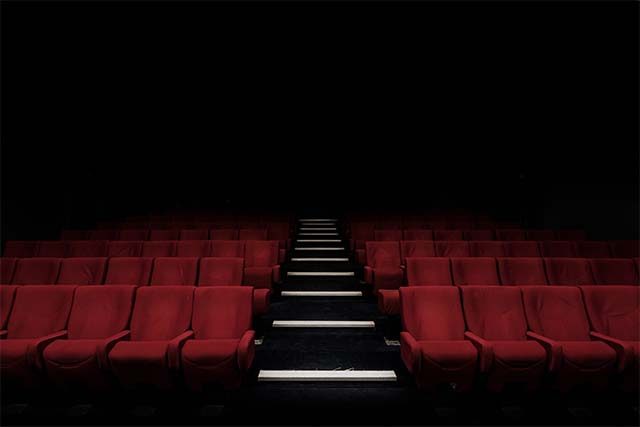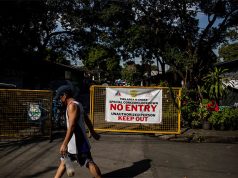Health risks of theaters were discussed online following the debated plan to reopen cinemas in general community quarantine areas amid the still raging pandemic.
The Metro Manila Council on Monday deferred the reopening of cinemas amid the still surge of infections in the National Capital Region and other populated areas under GCQ.
In resolution No. 99 dated Feb. 11, 2021, the Inter-Agency Task Force for the Management of Emerging Infectious Diseases announced the resumption of operations of the following businesses and industries in areas under GCQ starting Monday, February 15:
- Driving schools
- Traditional cinemas and video-and-interactive-game arcades
- Libraries, archives, museums and cultural centers
- Meetings, incentives, conferences, and exhibitions, and limited social events at accredited establishments of the Department of Tourism and
- Limited Tourist Attractions (e.g. parks, theme parks, natural sites and historical landmarks)
In May 2020, when the national government first introduced the phases of quarantine to the public, it was stated that such types of establishments which fall under the Category IV will remain close even if an area shifts to GCQ.
READ: From ECQ to modified ECQ and modified GCQ, what do these phases mean?
All the businesses in this list, however, have already been allowed to operate at limited capacities in places still under the GCQ phase.
Appeal to defer the reopening
In a radio interview last Saturday, Parañaque City Mayor Edwin Olivarez, also the chairperson of the MMC, emphasized the same argument in opposing the reopening of traditional cinemas, citing the risks of air-conditioned spaces.
“We know that the inside of cinemas is enclosed. The gathering inside is more than an hour and the space is air-conditioned,” Olivarez said.
He also bared that the local mayors who comprise the council were not consulted when the IATF made this decision.
Olivarez also said they were planning to appeal the IATF directive to reopen traditional theaters.
Palace, on the other hand, said reopening of movie theaters and other entertainment establishments has been moved to March 1 at the earliest and will be subject to the guidelines of local governments.
Physician Carlo Trinidad who goes by the Twitter handle @hellokidneyMD applauded the MMC for raising their concern.
“Good thing the mayors have more sense than those in the IATF. May nagagawa ang pagrereklamo kahit papaano,” Trinidad said.
Prior to the Palace’s pronouncement, statistician Peter Cayton, who is also a member of the University of the Philippines pandemic response team, urged the IATF to veto its latest resolution following MMC’s response to it.
“I-backtrack niyo na,” Cayton said.
Tony Leachon, former consultant of the National Task Force against COVID-19, also lamented the IATF’s overall move to reopen more businesses despite the continuous surge of cases.
“If the IATF does not understand the risks of ‘surges’ in an unvaccinated country, then they are part of the problem why we are in this sad state of prolonged lockdown and why we are last in SEA survey,” Leachon said.
Threats posed by opening cinemas
International health organizations consider places for recreation, sports and public transport areas as hot spots for spreading viral infections.
The rest are:
- Large social gatherings like wedding, funerals, parties, parades, concerts
- Crowds indoors like restaurants, bars, fitness centers
- Public transportation
- Cruise ships and river boats
Theaters, in particular, pose several health risks. Twitter user @citizenjaneph emphasized these risks, which include being in an air-conditioned space for nearly two hours.
The user also cited the preventive guidelines shared by the Healthcare Professionals Alliance against COVID-19 which traditional movie houses do not conform to.
Just because IATF says cinemas can open up doesn’t mean you can go watch a movie safely now.
Moviehouses are ENCLOSED. NO FRESH VENTILATION.
Movies are 2 hours long.Look at govt’s Apat Dapat. Fresh ventilation. 30-min interaction only.
They are breaking their own rules! pic.twitter.com/9TJx054EpJ— Citizen Jane (@citizenjaneph) February 14, 2021










